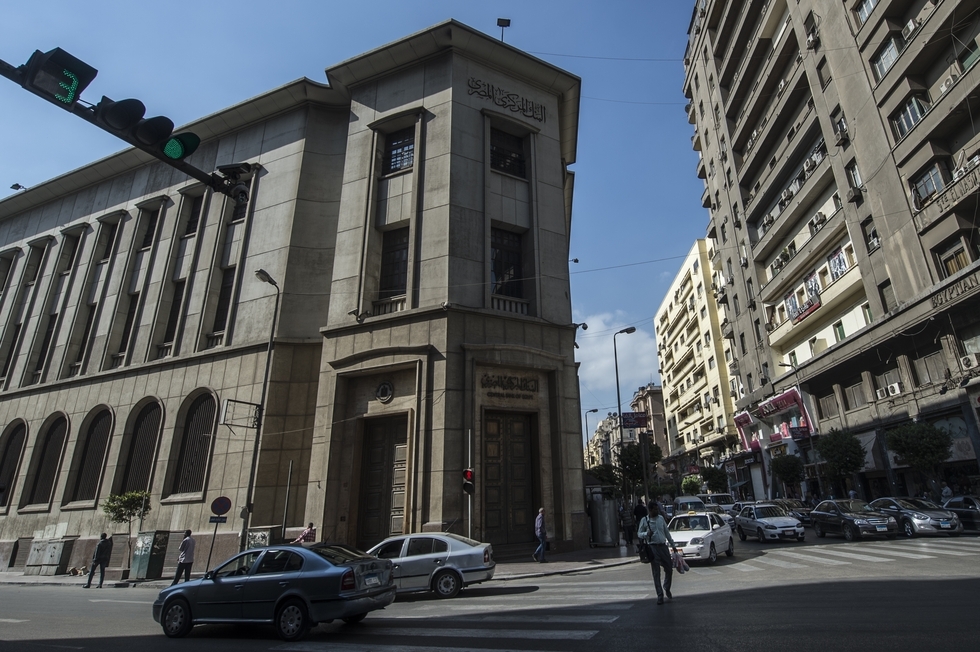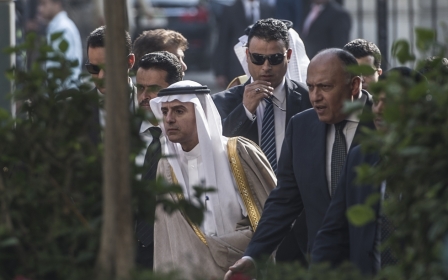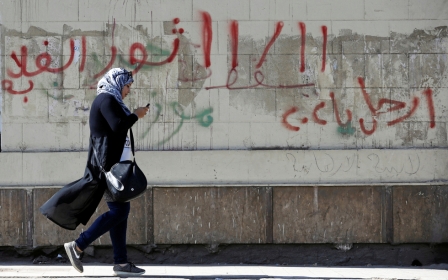IMF board approves $12bn loan to Egypt to support economic reforms

The International Monetary Fund's executive board approved a three-year, $12bn loan to Egypt to support its economic reform programme, it said in a statement on Friday.
The IMF said its board's approval allows for a disbursement of an initial tranche of $2.75bn. The remaining amount will be phased in over the duration of the programme, subject to five reviews, it said.
The programme "will help Egypt restore macroeconomic stability and promote inclusive growth," the board said in a statement.
"Policies supported by the program aim to correct external imbalances and restore competitiveness, place the budget deficit and public debt on a declining path, boost growth and create jobs while protecting vulnerable groups."
The move came after Cairo took crucial preliminary reform steps in recent weeks to meet IMF requirements, including floating the Egyptian pound, which subsequently lost 45 percent of its value against the US dollar.
The injection of new funds increased the Central Bank of Egypt's foreign reserves to $23.3bn, state television said in Cairo.
IMF managing director Christine Lagarde described the Egypt bailout as a "homegrown economic program" that the IMF will support "to address longstanding challenges to the economy".
"These include a balance-of-payments problem manifested in an overvalued exchange rate and foreign exchange shortages, large budget deficits that led to rising public debt and low growth with high unemployment," Lagarde said. "The authorities recognize that resolute implementation of the policy package is essential to restore investor confidence."
Import-dependent Egypt has struggled to attract US dollars and revive its economy since tourists and investors fled after the 2011 uprising that ended Hosni Mubarak's 30-year rule.
Facing a gaping budget deficit, plummeting foreign reserves and a burgeoning currency black market, it agreed to the IMF loan in August but had to secure about $6bn in bilateral financing for the deal to be completed.
Egypt made the final push for the loan after the central bank abandoned its currency peg of 8.8 pounds to the US dollar last week in a dramatic devaluation move welcomed by the Fund and World Bank. The pound traded at just over 16 to the dollar on Friday.
The government of Egyptian President Abdel Fattah al-Sisi also took other key steps required by the IMF, including passage of a value-added tax to raise revenues and reductions in fuel subsidies. The programme also requires legislation to reduce Egypt's public sector wage bill.
The IMF said the programme is projected to reduce Egypt's debt-to-GDP ratio, now hovering near 100 percent, by about 10 percentage points over three years.
Some of the fiscal savings from austerity measures will be used to strengthen social safety nets, including by increasing food subsidies and direct transfers to the poor.
Lagarde also emphasized that Egypt needs to make structural reforms to its economy such as streamlining regulations for business start-ups, passing insolvency reforms and labour reforms aimed at increasing labour participation.
The $12bn IMF program also will be accompanied by about $6bn in bilateral financing contributed by China, the United Arab Emirates, G7 countries, bank loans and bond issues. Those transactions are expected to be announced separately.
Middle East Eye propose une couverture et une analyse indépendantes et incomparables du Moyen-Orient, de l’Afrique du Nord et d’autres régions du monde. Pour en savoir plus sur la reprise de ce contenu et les frais qui s’appliquent, veuillez remplir ce formulaire [en anglais]. Pour en savoir plus sur MEE, cliquez ici [en anglais].




